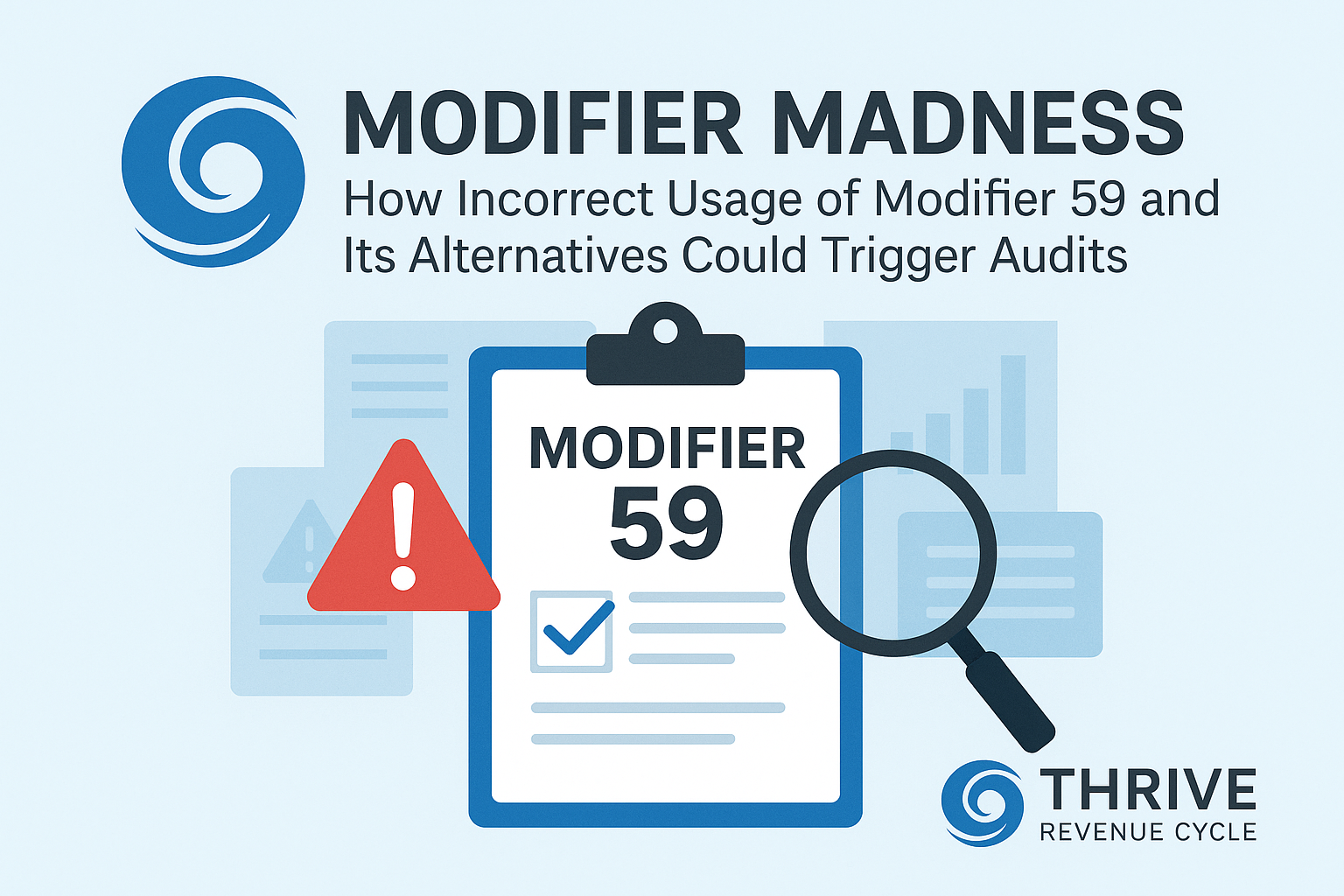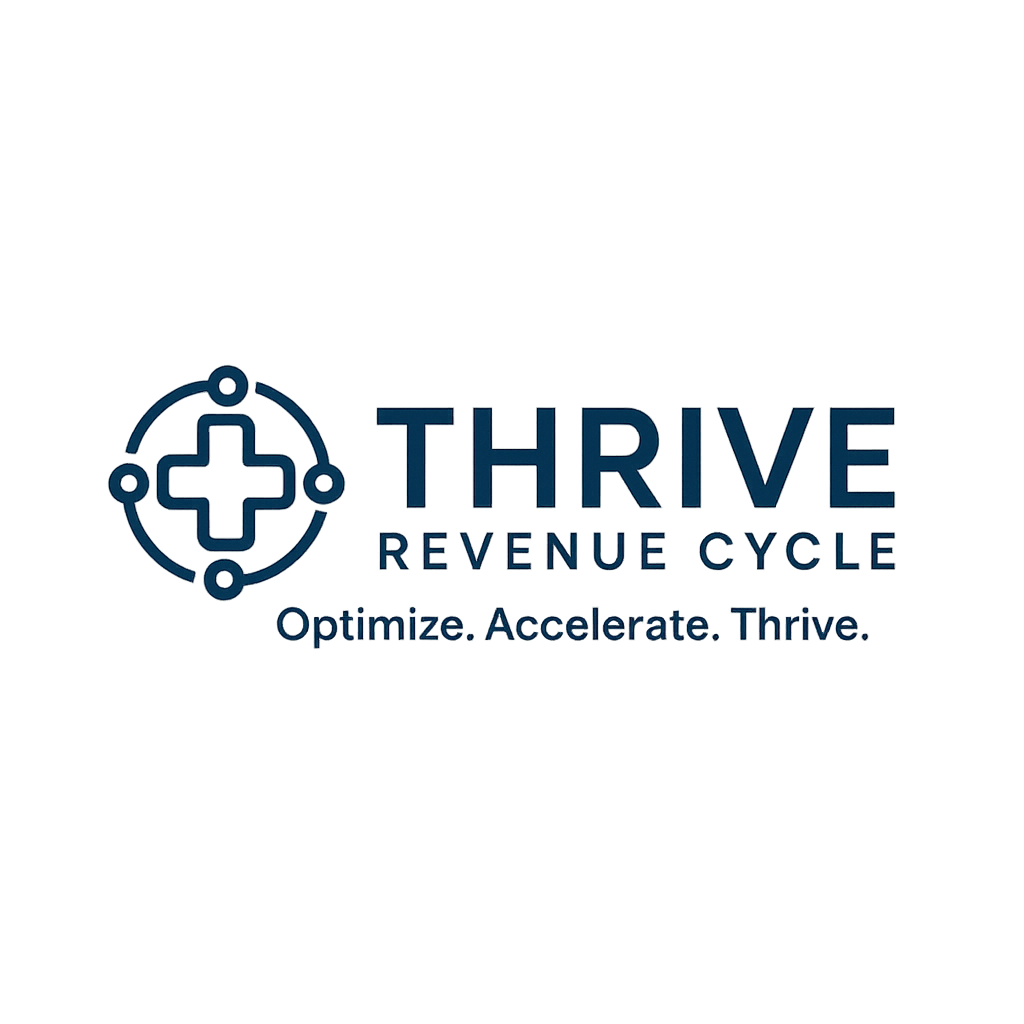Latest posts
-
📌 Appeal or Abandon? A Data-Driven Framework for Smart Denial Triage

The Appeal Dilemma Denials are inevitable—but wasted appeals are optional.Many revenue cycle teams treat denials reactively: appeal everything, escalate if denied again, and hope something sticks. This approach is: Not all denials deserve your time. The question isn’t just can you appeal, but should you? Denial Volume ≠ Denial Value Denial rates get attention, but…
-
🩺 Time to Talk TAT: Why Turnaround Time Should Be a KPI in Your Revenue Cycle

What Is Turnaround Time — and Why Does It Matter? Turnaround time (TAT) refers to the time it takes for a task or process in the revenue cycle to be completed from start to finish. Whether it’s submitting a claim, receiving a payment, responding to a denial, or obtaining prior authorization — the speed of…
-
Why One Code Doesn’t Fit All

Navigating CPT/HCPCS Variations Across Medicare Advantage Plans Why Billing Medicare Advantage Isn’t One-Size-Fits-All If you’ve ever billed the same CPT code to two different Medicare Advantage (MA) plans and received two completely different responses—congratulations, you’re not alone. Unlike traditional Medicare, which follows consistent CMS-issued national policies (NCDs) and local coverage determinations (LCDs) by MACs, MA…
-
Template Trouble: How Poor EHR Design Is Killing Clean Claims in 2025

📉 Your EHR Isn’t Helping—It’s Hurting Your Claims EHR templates were designed to streamline workflows, standardize notes, and help providers meet documentation requirements faster. But in 2025, they’ve become a top source of hidden claim contamination. At Thrive, we’ve seen it firsthand: templates meant to speed things up actually introduce patterns that trigger payer audits,…
-
🌀 Modifier Madness: How Incorrect Usage of Modifier 59 and Its Alternatives Could Trigger Audits

In the world of Medicare billing, a single keystroke can separate clean reimbursement from costly recoupment. Few billing issues generate as much confusion—or as many denials—as improper modifier usage. Among the most misused? Modifier 59, often applied in a last-ditch attempt to override Medicare edits. As a Medicare billing strategist with over 25 years of…
-
The 5 Biggest Pain Points in FQHC Billing—and How to Solve Them

For Federally Qualified Health Centers (FQHCs), billing isn’t just complex—it’s uniquely demanding.Unlike traditional provider organizations, FQHCs face a highly regulated, grant-funded, and payer-diverse environment that introduces billing, compliance, and documentation hurdles at every stage of the revenue cycle. From flat PPS reimbursements to HRSA audit exposure and Medicaid-specific rules, most FQHC billing teams are forced…
-
The Rise of Retrospective Recoupments: How to Shield Your Revenue Before Payers Strike

Your Reimbursement Isn’t Safe—Even After Payment Clears In a post-COVID environment defined by financial recovery and aggressive payer behavior, practices can no longer rely on “paid claims” as final income. In 2025, retrospective audits and recoupments have skyrocketed, with many providers facing six-figure clawbacks on claims previously thought resolved. One Texas orthopedic group saw $860,000…
-
💸 The $100K Denial Problem: Why Medicare Billing Mistakes Are Costing Providers More Than Ever

Unresolved Medicare denials aren’t just an administrative hassle—they’re silent revenue killers. Across the country, providers are leaving tens of thousands—sometimes hundreds of thousands—of dollars on the table each year due to preventable billing and coding errors. What’s worse? Many don’t realize it until it’s too late for appeals or corrections. As a 25-year Medicare RCM…
-
The $500,000 Lesson: Why Every Revenue Cycle Team Must Document Like Lawyers

How Clear Notes in EHRs Save Revenue, Reduce Call Volume, and Win Appeal “A hospital lost $497,000 because a front desk note simply said ‘insurance verified’ instead of including the verification number. The judge called it ‘insufficient evidence’ – and that’s becoming the rule, not the exception.”* Why Your EHR Notes Are Now Legal &…
-
The Top 5 AI Trends Transforming Healthcare Revenue Cycle Management in 2025

AI is no longer coming for the revenue cycle—it’s already here.From automated eligibility verification to predictive denials and real-time audit readiness, artificial intelligence is rapidly transforming how providers manage the business of healthcare. And while AI holds the potential to eliminate friction and accelerate cash flow, poor implementation—or failure to adapt—can introduce just as many…
